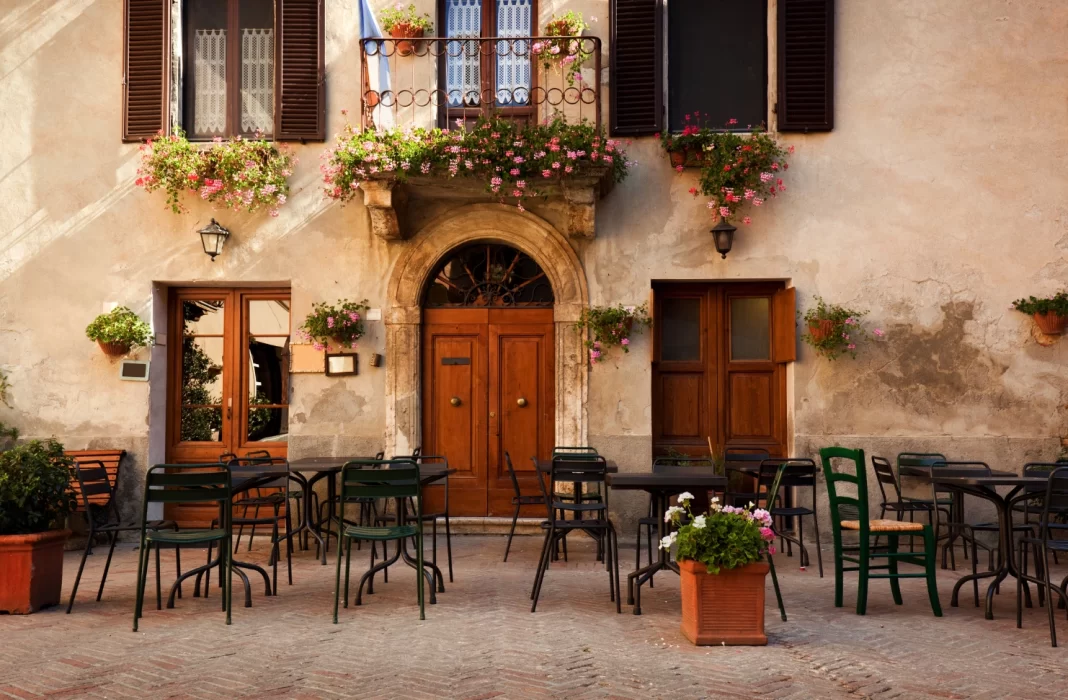Wondering how to open a restaurant in Bahrain? You’re looking at one of the hottest food markets in the Gulf region, where the restaurant industry continues to thrive.
The numbers tell the story. Bahrain’s food service market hit $1.05 billion in 2025. It’s growing at 11% yearly and will reach $1.78 billion by 2030, making it an attractive destination for restaurant business ventures.
Here’s what makes it even better: 74% of local customers eat fast food three times a week. Bahrain tourism brings 9.9 million visitors annually, which is a big market of people looking for good food across the hospitality industry.
The best part? You can own 100% of your restaurant in Bahrain. No local partners required, thanks to Bahrain’s business-friendly policies.
Why Choose Bahrain for Your Restaurant Business?
Bahrain makes restaurant ownership simple. The government wants foreign investment in the restaurant industry. Thus, they’ve removed most barriers that make business operations difficult elsewhere.
You get complete ownership structure control. What does that mean? You get to make all decisions yourself, keep all profits, and scale at your own pace within this thriving hospitality industry.
The location works perfectly too. You’re connected to other GCC countries. Saudi Arabia is a 30-minute drive. Dubai flights take an hour. Your customer base extends far beyond Bahrain’s borders to other GCC countries.
Internet reaches 99.7% of people here. Social media usage hits 87.8%. Your marketing efforts actually reach local customers effectively.
Bahrain tourism keeps growing. Business travelers visit regularly. Expats from 50+ countries live here permanently. Each group brings different customer preferences and spending power to the restaurant industry.
What Legal Structure Should You Choose?
Start with a limited liability company for your restaurant business. This business structure protects your personal assets. A limited liability company keeps business debts separate from your money while providing the ideal ownership structure.
It works well for single owners and partnerships. You can add investors later without changing your entire business structure.
Partnership agreements matter when multiple people invest. Write down who does what. How profits split. Who makes daily decisions. This partnership agreement prevents arguments later between restaurant owners.
A limited liability company with single ownership gives complete control. You decide menu changes, hiring, expansion, everything. No committees or long discussions needed.
How Do You Get Commercial Registration?
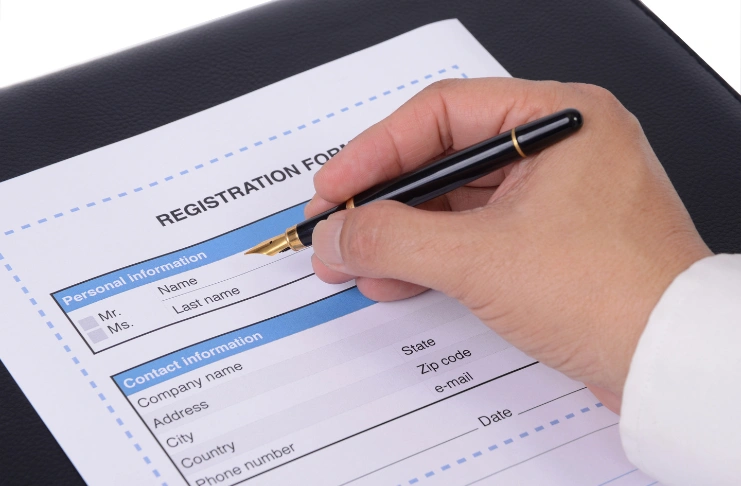
Commercial registration is your business license. Every restaurant in Bahrain needs one. The Ministry of Industry, Commerce, and Tourism handles this business registration process.
The commercial registration process is mostly online now. Use the Sijilat portal. It walks you through each step clearly for business registration.
Here’s what you need for commercial registration:
- Unique business name
- Business plan (simple, not fancy)
- Your passport and visa documents
- Lease agreement for your location
- BHD 200-300 for fees
Pick your business name carefully. It will become your brand down the road. Check if the business name is available online first. Avoid names too similar to existing restaurants.
Your business plan doesn’t need to be complex. Explain your restaurant concept. Describe your target audience. Include basic financial planning projections.
Submit everything online. Track progress through the portal. Most commercial registration applications are processed within a week.
Getting Your Registration Fast
Apply online through Sijilat. Don’t visit offices unless required. The online system works faster for business registration.
Have all required documents ready before starting. Missing papers delay everything.
Pay fees immediately after approval. Use online banking or visit approved payment centers.
Your commercial registration certificate arrives by email. Print copies for your records.
What Food Licenses Do You Need?
Food safety comes first in Bahrain. Your food license proves you understand safe food handling. Local customers trust restaurants with proper licenses to legally operate.
The Bahrain Food Safety Authority issues food licenses. They require mandatory training before licensing.
Food safety training covers:
- Proper food storage temperatures
- How to prevent contamination
- Kitchen sanitation procedures
- Personal hygiene for staff
The training takes 2-3 days. You get certification after passing the exam. Keep this certificate current through annual renewals to ensure compliance.
Health permits require facility inspections. Inspectors check your kitchen setup. They verify whether the equipment meets safety regulations.
Install commercial-grade equipment only. Home appliances don’t pass inspections. Proper ventilation is a must-have. Hand-washing stations must be accessible throughout the kitchen.
Steps to Get Your Food License
Complete food safety training first. Schedule through the Food Safety Authority website.
Submit your facility plans before construction. Get approval for kitchen layout, equipment placement, and ventilation systems to ensure compliance with safety regulations.
Install approved equipment only. Keep all purchase receipts and installation certificates.
Schedule your inspection after setup completion. Inspectors need access to all areas.
Pay licensing fees after passing the inspection. Fees range from BHD 300-500, depending on restaurant size.
How Much Money Do You Need to Start?
Restaurant startup costs vary widely. Location matters most. Prime spots cost more but bring more customers.
Here’s a realistic breakdown of startup costs:
Basic Licensing Startup Costs:
- Commercial registration: BHD 200-300
- Food license: BHD 300-500
- Municipality permits: BHD 100-200
- Other permits: BHD 200-400
Location Startup Costs:
- Rent deposit: 3-6 months upfront
- Key money: BHD 5,000-20,000 (prime locations)
- Utilities setup: BHD 500-1,000
Equipment and Setup:
- Kitchen equipment: BHD 15,000-40,000
- Casual dining furniture: BHD 5,000-15,000
- POS system: BHD 2,000-5,000
- Initial inventory: BHD 3,000-8,000
Working Capital:
- First 3 months operating cost: BHD 10,000-25,000
Total startup costs range from BHD 35,000 for simple concepts to BHD 100,000+ for upscale restaurants.
Smart Ways to Reduce Startup Costs
Start smaller. Test your concept before investing heavily. Many profitable businesses began as small, casual dining spots.
Buy good used equipment. Check restaurant supply companies for refurbished items. Save 30-50% compared to new cost.
Negotiate rent terms. Landlords often reduce deposits for reliable tenants. Long-term lease agreements get better rates.
Phase your opening. Start with limited menu items. Add complexity as revenue grows.
Where Should You Open Your Restaurant?
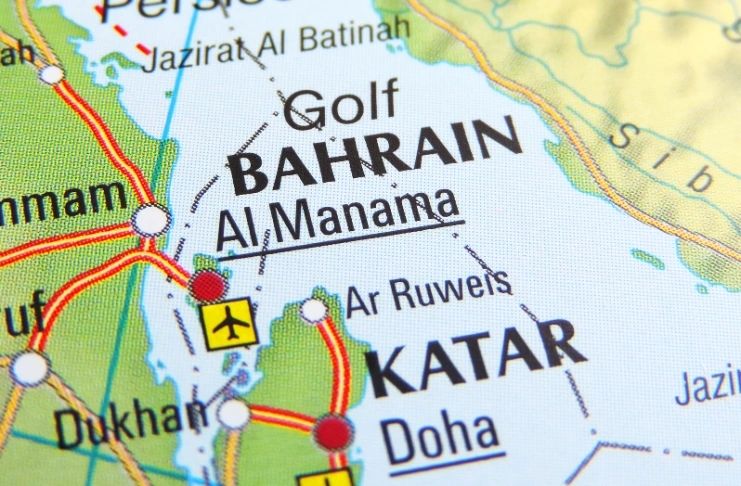
Location determines success more than any other factor. Great cuisine in a bad location struggles. Average cuisine in great locations thrives.
High-traffic areas cost more but generate more revenue. Shopping malls, business districts, and tourist zones stay busy, providing the ideal location for many restaurant owners.
Consider your local customers. Business lunch crowds want fast service near offices. Families prefer casual dining with parking. Tourists seek local experiences in cultural areas.
Study foot traffic patterns. Visit potential locations at different times. Count the people walking by during your planned operating hours.
Check parking availability. Local customers won’t walk far for casual dining. Valet parking works for upscale restaurants only.
Best Restaurant Locations in Bahrain
Manama City Center: High foot traffic, business lunch crowds, tourists. Expensive but profitable location.
Adliya: Casual dining and entertainment district. Evening crowds, weekend traffic. Good for casual dining concepts.
Seef District: Shopping and residential area. Families and young professionals. Steady traffic throughout the day.
Juffair: Expat community, hotels, nightlife. International cuisines perform well in this location.
Shopping Malls: Guaranteed foot traffic, family customers, and a climate-controlled environment. Higher cost but predictable income.
How Do You Hire Restaurant Staff?
Bahraini employees don’t need work permits. They understand local culture and customer preferences. Hiring them simplifies paperwork for restaurant owners.
Foreign employees bring specialized skills. Experienced chefs, international cuisines expertise, or multilingual service abilities. Foreign employees require work permits.
Work permits cost BHD 200 per employee plus visa fees. Processing takes 2-4 weeks. Plan hiring timeline accordingly.
Train restaurant staff on food safety regardless of experience. Bahrain requires food handler certifications. Schedule training before opening.
Essential Restaurant Positions
Kitchen Staff:
- Head chef (foreign expertise often valuable)
- Line cooks (mix of local and foreign employees)
- Prep cooks (local hiring works well)
- Dishwashers (entry-level positions)
Front of House:
- Restaurant manager (local cultural knowledge is important)
- Servers (bilingual abilities help)
- Host/hostess (friendly, organized locals ideal)
- Cashier (detail-oriented, trustworthy employees)
Start with a minimum of restaurant staff. Add positions as the business grows. Overstaffing kills profits quickly.
What Business Activity Classification Do You Need?
Your business activity determines licensing requirements. Choose carefully during commercial registration. Changes later require paperwork and fees.
Restaurant classifications for business activity:
- Quick service restaurant (fast food, limited table service)
- Full-service restaurant (table service, diverse menu)
- Cafe (coffee, light meals, casual atmosphere)
- Specialty food service (food trucks, catering, delivery only)
Each business activity classification has different legal requirements. Quick service allows faster operations but may restrict alcohol service. Full service enables broader menus but requires more permits.
Mixed operations combine multiple business activity types. Restaurant with catering, cafe with retail sales, or casual dining with delivery service. List all planned business activity during registration.
How Do You Fund Your Restaurant Business?
Self-funding gives complete control. Use personal savings, family money, or sell other assets to raise funds. No loan payments or investor interference.
Bank loans work for established entrepreneurs. Bahrain offers competitive small business rates. Prepare detailed business plans and financial planning projections.
Government support programs help qualifying businesses. The Bahrain Economic Development Board offers assistance through government support initiatives. Business incubator programs provide funding and mentorship as government support.
Private investors seek profitable businesses with growth potential. Prepare presentations showing market opportunity and competitive advantages for raising funds.
Bank Loan Requirements
Required documents:
- Detailed business plan
- Financial planning projections (3-5 years)
- Personal financial statements
- Collateral documentation
- Industry experience proof
Typical bank loan terms:
- 5-7 year repayment periods
- 4-8% interest rates
- 20-30% down payment required
- Personal guarantees are common for bank loans
Apply to multiple banks. Terms vary depending on institutions. Negotiate rates and requirements for bank loans.
What Other Licenses and Permits Do You Need?
Municipality permits ensure location compliance. Each area has specific legal requirements for restaurant operations. Submit applications early in your planning process to obtain licenses.
Fire safety certificates verify emergency procedures and equipment. Install proper fire suppression systems. Mark emergency exits clearly. Train staff on evacuation procedures.
Signage permits allow exterior displays and marketing materials. Follow local authorities’ guidelines for size, lighting, and content. Some areas restrict neon signs or electronic displays.
Civil Defense approvals cover safety systems and crowd management. Required for restaurants serving 50+ customers simultaneously to ensure compliance.
Complete Permit Checklist
Before opening, obtain licenses:
- Commercial registration
- Food license
- Health permit
- Municipality permit
- Fire safety certificate
- Signage permit
- Civil Defense approval
- Liquor license (if you serve alcohol)
Keep all permits current. Mark renewal dates on your calendar. Expired permits can force closure.
How Do You Set Up Your Kitchen Equipment?
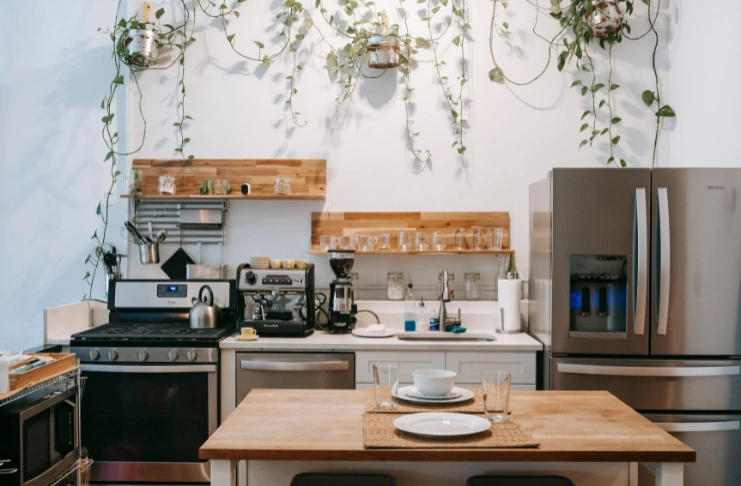
Commercial kitchen equipment must meet local safety regulations. Buy from approved suppliers only. Keep all certification documents.
Plan your kitchen layout for efficiency. Food should flow from storage through prep, cooking, and service without crossing paths. This prevents contamination and speeds service.
Ventilation systems require professional installation. Adequate airflow prevents heat buildup and removes cooking odors. Inspectors check ventilation before licensing.
Refrigeration needs vary depending on menu complexity. Calculate storage requirements for fresh ingredients, prepared items, and beverages. Include backup systems for critical items.
Essential Kitchen Equipment
Cooking Equipment:
- Commercial gas ranges or electric cooktops
- Convection ovens
- Grills or griddles (menu dependent)
- Fryers (if serving fried items)
- Steamers (healthy cooking options)
Preparation Equipment:
- Commercial mixers
- Food processors
- Slicers
- Prep tables with refrigerated storage
- Commercial-grade knives and utensils
Storage and Safety:
- Walk-in coolers/freezers
- Reach-in refrigerators
- Dry storage shelving
- Fire suppression systems
- First aid supplies
Buy quality kitchen equipment. Cheap alternatives break frequently and cost more in the long term.
How Do You Market Your Restaurant?
Social media marketing reaches 87.8% of Bahrain’s population. Instagram and Facebook work best for restaurants. Post food photos, behind-the-scenes content, and customer experiences daily in your marketing efforts.
Partner with food delivery apps immediately. Talabat, Deliveroo, and Carriage dominate local delivery services. These platforms bring local customers you can’t reach otherwise through traditional marketing.
Build relationships with hotels and corporate clients. Steady catering orders provide predictable revenue. Business lunch crowds offer regular weekday income.
Word-of-mouth marketing still matters most. Great cuisine and service create local customers who recommend you to friends. Focus on consistency above everything else in your marketing strategy.
Instagram Marketing:
- Post high-quality food photos daily
- Share chef preparation videos
- Feature customer testimonials
- Use local hashtags (#BahrainEats, #ManamaDining)
Facebook Marketing:
- Create a business page with complete information
- Post operating hours, menu updates, and special offers
- Respond to customer reviews and messages
- Share local community events
Website Essentials:
- Menu with prices and photos
- Location and contact information
- Online reservation system
- Customer review integration
Track marketing results. Measure which efforts bring actual local customers, not just social media likes.
Do You Need to Pay Corporate Income Tax?
Bahrain has no corporate income tax for most businesses. This saves significant money compared to other countries, supporting Bahrain’s economy growth.
Value-added tax applies to restaurant sales. Current rate is 10% on most food and beverage items. Register for VAT if annual revenue exceeds BHD 20,000.
Keep detailed financial records. Track all income and expenses. This supports tax compliance and helps manage cash flow.
Annual license renewals require current fees. Budget for these costs each year. Late renewals can interrupt operations.
Tax planning tips you must consider:
- Use dedicated accounting software. Maintain organized financial records of your restaurant operations from day one.
- Assess corporate tax exposure early. While most businesses in Bahrain are exempt, register if your projected revenue is high.
- Hire a local accountant. Professionals familiar with Bahrain’s tax laws can help you stay compliant and avoid costly mistakes.
- Budget for renewals in advance. Allocate funds monthly for annual license and permit renewal fees to avoid disruptions.
How Do You Maintain Food Safety Standards?
Food safety protects your customers and your business reputation. One food poisoning incident can destroy years of reputation-building.
Train all restaurant staff handling food. Certification requirements apply to everyone touching ingredients or prepared dishes. Schedule training before hiring.
Monitor temperatures constantly. Install digital thermometers in all refrigeration units. Check cooking temperatures during service. Keep logs for inspection records.
Implement cleaning schedules. Deep clean kitchen equipment daily. Sanitize surfaces between uses. Replace cleaning supplies regularly.
Source ingredients from approved suppliers only. Verify their food safety certifications. Inspect deliveries before accepting them.
Morning Setup:
- Check refrigerator temperatures
- Inspect ingredient freshness
- Clean and sanitize prep surfaces
- Verify hand-washing station supplies
During Service:
- Monitor cooking temperatures
- Practice proper food storage
- Wash hands between tasks
- Keep raw and cooked foods separate
End of Day:
- Deep clean all equipment
- Store leftovers properly
- Record temperature logs
- Secure food storage areas
Build these habits from your first day of operation.
INDUSTRY INSIGHT
| Bahrain is recognized as a regional leader in food safety, consistently aligning with global standards like HACCP and ISO 22000. According to the United Nations in Bahrain, the country’s multi-agency governance model ensures tight control over imports, hygiene protocols, and staff training. The Ministry of Health’s Food Safety Guidelines further emphasize a risk-based approach for food establishments. However, publicly available data on foodborne incidents or recall events remains limited. While Bahrain ranked 38th globally in the 2022 Global Food Security Index, its transparency around food safety incidents could be enhanced to match its regulatory rigor. |
Should You Serve International Cuisines?
Bahrain’s diverse population creates demand for international cuisines. Expats seek familiar food from home. Local customers enjoy trying new flavors and international cuisines.
Consider your expertise first. Authentic international cuisines require proper knowledge and technique. Poor execution of international cuisines disappoints customers.
Popular international cuisines include Indian, Thai, Lebanese, Italian, and Filipino. Each serves different communities and price points in the restaurant industry.
Traditional Bahraini dishes appeal to local customers and curious tourists. Items like machboos, harees, and margoog have proven popular among local customers.
Balance familiar and adventurous items. Include crowd-pleasers alongside signature dishes. Let local customers try new international cuisines without fear.
Menu Development Strategy
Start with international cuisines you understand well. Expand offerings as you learn customer preferences.
Research local ingredient availability. Some international cuisines require specialized ingredients that cost more or arrive irregularly.
Test new dishes as daily specials before adding to regular menu. Customer feedback guides permanent additions to your international cuisines selection.
Price dishes according to ingredient cost and local market expectations. Premium ingredients justify higher prices only if local customers value authenticity in international cuisines.
How Do You Manage Daily Operations?
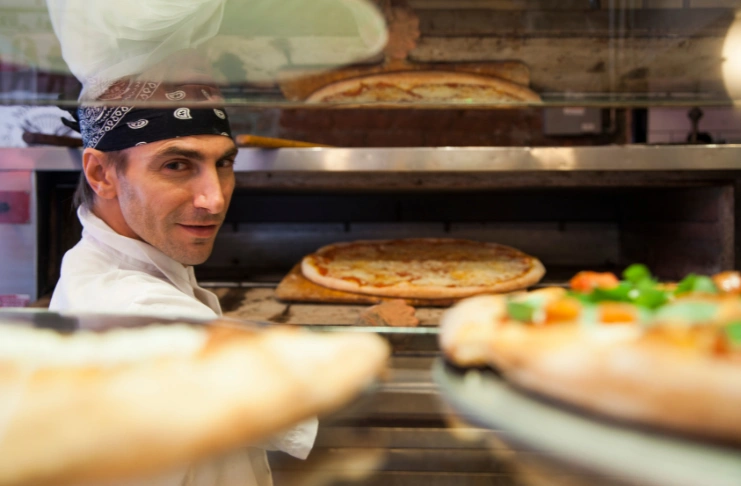
Consistent operations create satisfied local customers who return regularly. Develop systems for everything from food prep to customer service.
Inventory management prevents waste and stockouts. Track usage patterns for all ingredients. Order just enough to stay fresh without running out.
Staff scheduling balances labor costs with service quality. Peak hours need full staffing. Slow periods require minimal coverage.
Quality control ensures every dish meets your standards. Train cooks on portion sizes, cooking times, and presentation standards.
Customer service standards create positive experiences. Train servers on menu knowledge, upselling techniques, and complaint resolution.
Inventory Control:
- Count inventory weekly
- Track food cost as a percentage of sales
- Rotate stock using first-in, first-out methods
- Minimize waste through proper portioning
Staff Management:
- Create clear job descriptions
- Provide ongoing training
- Recognize good performance
- Address problems quickly
Quality Assurance:
- Taste the food before serving
- Check presentation standards
- Monitor customer feedback
- Make corrections immediately
Good operations run smoothly without constant management attention.
What Growth Opportunities Exist?
Successful restaurants often expand through multiple locations. Bahrain’s small size makes managing several locations feasible for profitable businesses.
Catering services add revenue without additional seating capacity. Corporate catering provides steady weekday income and expands your services.
Food delivery expansion reaches local customers beyond your location. Partner with multiple delivery platforms for maximum coverage and expanded services.
Franchise opportunities can accelerate growth. Develop systems that maintain quality across locations operated by other restaurant owners.
Export to other GCC countries becomes possible with established operations. Dubai, Qatar, and Kuwait offer larger markets for proven concepts in other GCC countries.
Conclusion
With low entry barriers, zero corporate income tax, and a consumer base that’s growing in appetite and diversity, the Bahrain market offers both stability and scale for restaurant businesses.
Whether you’re a first-time operator or a seasoned restaurateur, the country gives you the infrastructure, audience, ownership, and freedom to build something lasting. Just bring a strong concept, get your licenses in order, and stay sharp on execution.
Frequently Asked Questions
1. How to start a restaurant in Bahrain?
Get commercial registration first, then obtain food licenses and health permits. Complete food safety training before hiring restaurant staff. Choose your location carefully and secure proper funding before opening.
2. Can a foreigner own a business in Bahrain?
Yes, foreigners can own 100% of restaurant businesses in Bahrain. No local partners required. You have complete control over operations and profits.
3. How much does it cost to set up a business in Bahrain?
Basic licensing costs BHD 500-1,500. Total restaurant startup costs range from BHD 35,000 for simple concepts to BHD 100,000+ for upscale establishments.
4. How much does it cost to open a restaurant?
Expect BHD 35,000-100,000 depending on concept, location, and size. This includes licensing, equipment, initial inventory, and 3 months of operating capital.
5. What is the best business to start in Bahrain?
Restaurants rank among the most profitable businesses. The food service market grows 11% annually, with strong local and tourist demand.
6. How much does it cost to start a casual dining restaurant?
Casual dining restaurants need BHD 50,000-100,000 for startup costs, including kitchen equipment, casual dining room setup, licensing, and working capital.
7. How much does it cost to start a fast casual restaurant?
Fast casual concepts require BHD 25,000-50,000 startup investment, depending on location, equipment needs, and initial operating capital.
8. Can foreigners own a business in Bahrain?
Foreign investors enjoy 100% ownership rights for restaurant businesses. No local partnership requirements exist for food service operations.
9. How to start a restaurant business in Bahrain?
Begin with commercial registration, secure food licenses, complete safety training, choose your location, hire restaurant staff, and develop marketing strategies before opening.
10. How much does a business license cost in Bahrain?
Commercial registration costs BHD 200-300. Food licenses add BHD 300-500. Total licensing typically ranges BHD 800-1,200 for restaurants.
11. How much does it cost to open a cafe in Bahrain?
Cafe startup costs range BHD 15,000-35,000 including equipment, licensing, location setup, and initial operating capital for smaller operations.
12. How to start a food business in Bahrain?
Complete commercial registration, obtain food licenses, ensure food safety compliance, secure a suitable location, and develop customer acquisition strategies.
13. How much does it cost to start a food business?
Food business costs vary depending on the concept, from BHD 15,000 for simple concepts to BHD 75,000+ for comprehensive restaurant operations, including all startup requirements.


